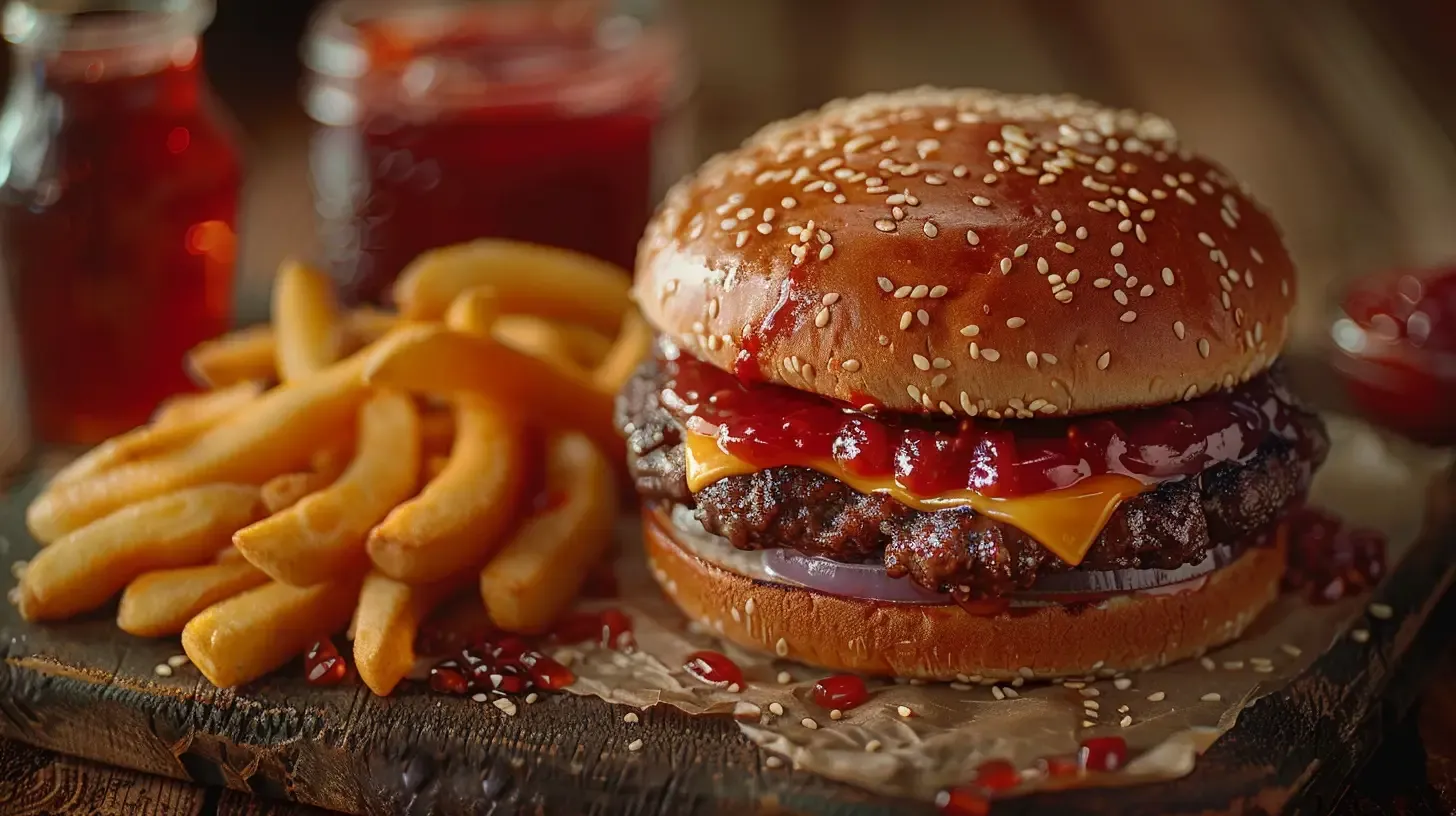19 February 2024
The Junk Food Juggernaut: Unraveling America's Unhealthy Obsession.

Press the play button in the top right corner to listen to the article
In the United States, the consumption of junk food has transformed from a mere dietary indulgence to a significant public health concern. This transformation is not just a testament to changing palates but also reflects deeper socio-economic and cultural shifts. The American diet, now saturated with high-calorie, low-nutrient foods, is a symptom of a larger epidemic that intertwines convenience culture with aggressive marketing tactics, ultimately shaping the nation's eating habits and health outcomes.
The Allure of Convenience
At the heart of America's junk food fixation is the unparalleled convenience it offers. Fast-food outlets, vending machines, and gas stations serve up a variety of processed foods 24/7, making it almost too easy to grab a quick bite that is often unhealthy. This culture of convenience caters to the fast-paced American lifestyle, where time is a commodity and cooking at home is frequently viewed as a luxury many cannot afford. The result is an overreliance on ready-to-eat meals and snacks that are typically high in sugar, fat, and salt but low in essential nutrients.
Marketing Mayhem
The marketing muscle behind junk food cannot be underestimated in its role in America's dietary dilemmas. Billions of dollars are funneled into advertising campaigns that target all age groups, with a particular focus on children and teenagers. These campaigns are not merely selling a product; they are crafting a narrative that equates happiness and success with the consumption of their foods. Through catchy jingles, captivating visuals, and strategic placements in movies and video games, junk food has been embedded into the American psyche, making it a pervasive element of daily life.
The Health Havoc
The consequences of America's junk food consumption are stark. Obesity rates have soared, with nearly 40% of adults and 19% of youths battling obesity, a precursor to a raft of health issues such as diabetes, heart disease, and certain cancers. Moreover, the nutritional deficit inherent in junk food consumption has led to a paradoxical situation where individuals may be both overweight and malnourished, lacking in critical vitamins and minerals.
A Cultural Conundrum
Junk food's dominance in the American diet is also a reflection of deeper cultural underpinnings. Food, in many ways, is a social currency. It is part of celebrations, a source of comfort, and, for many, an accessible luxury. Junk food, with its myriad flavors, novelty items, and constant innovations, taps into this cultural vein, offering a sense of indulgence and nostalgia. However, this cultural embrace comes at a cost, sidelining healthier traditional foods and undermining public health efforts.
The Path Forward
Addressing America's junk food problem is a multifaceted challenge that requires a concerted effort from policymakers, the food industry, communities, and individuals. Initiatives like improving food labeling, restricting junk food marketing to children, and promoting access to fresh, nutritious foods are steps in the right direction. Education plays a pivotal role as well, empowering individuals to make informed dietary choices.
In the end, unraveling America's unhealthy obsession with junk food is not about demonizing certain foods but about fostering a food environment that prioritizes health, well-being, and informed choice. As the nation grapples with the consequences of its dietary habits, the call to action is clear: it's time to shift the balance towards a more nutritious, mindful, and sustainable approach to eating.
The content, including articles, medical topics, and photographs, has been created exclusively using artificial intelligence (AI). While efforts are made for accuracy and relevance, we do not guarantee the completeness, timeliness, or validity of the content and assume no responsibility for any inaccuracies or omissions. Use of the content is at the user's own risk and is intended exclusively for informational purposes.
#botnews















































































